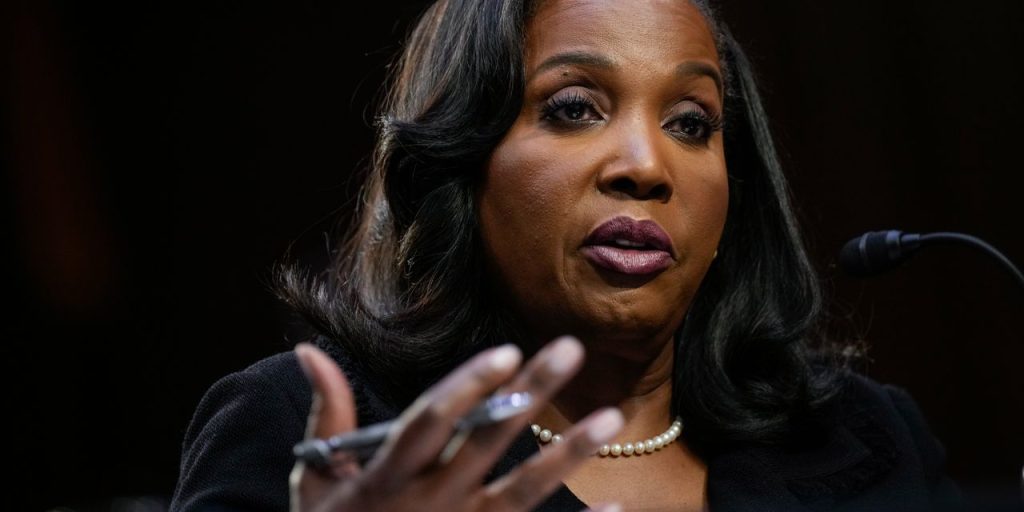Households, businesses and banks are in pretty good financial health and don’t appear to pose a big threat to the U.S. economy, a senior Federal Reserve official said Monday.
“In my view, our financial system is substantially more resilient than it was in the mid-2000s,” said Fed governor Lisa Cook in a speech at Duke University.
Cook said household debt such as car loans, credit cards and mortgages “remains at modest levels.”
In addition, most of the debt is owned by those with “strong credit histories or considerable home equity,” she said.
Business debt is near historically high levels, she noted, but companies appear to have the means to pay off their bills due to robust profits. So far, rising interest rates have not hurt them much.
Banks and most other financial institutions, meanwhile, “remain sound and resilient overall,” she said, and have ample financial cushion that often exceeds regulatory requirements.
“In the banking industry, the deposit volatility that we saw earlier this year has abated,” Cook said, referring to a brief run on deposits after the failure of Silicon Valley Bank.
Still, Cook said she and other senior Fed officials are closely monitoring the financial system for emerging signs of stress.
She said the amount of leverage, or money engaged in potentially risky investments, was “elevated” among private hedge funds that typically serve private clients.
She also said lending to commercial real-estate entities was riskier because of lax demand for office space in big cities and coastal areas since the start of the pandemic, with many people continuing to work from home.
If more delinquencies took place, she said, it could put more pressure on the financial system.
Rising long-term bond yields are another threat, she said, but she added that expectation of “higher near-term policy rates does not appear to be causing the increase.”
Yet even if the current risks appear low, Cook said, the Fed has to remain on guard. The failure of Silicon Valley Bank earlier in the year, for example, caught the central bank by surprise.
“We cannot — and do not expect to — foresee all potential risks. The financial system is too complex and evolves too rapidly for that to be possible,” Cook said.
“What we can do is remain vigilant to emerging vulnerabilities and build resilience to a variety of potential shocks.”
Cook did not mention the large and rising U.S. national debt. Other Fed officials have previously said the debt is not sustainable in the long run.
Read the full article here
